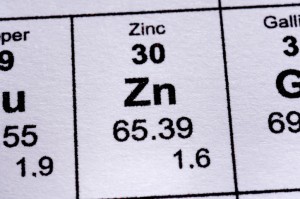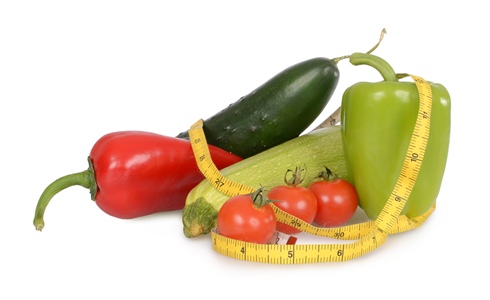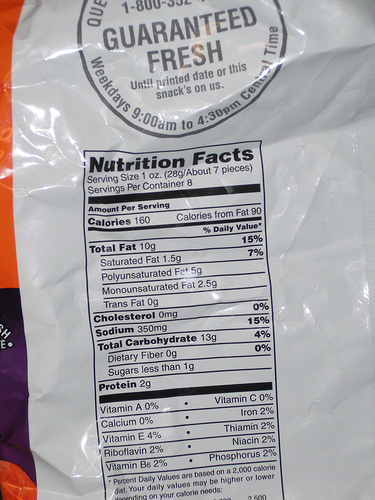Misdiagnosis of zinc deficiency leads to copper deficiency
 The human body requires essential minerals in order to perform its functions. There are two types of dietary essential minerals the body needs: Major and minor. Major essential minerals consist of calcium, sodium, sulfur, phosphorus, potassium, magnesium and chlorine. Minor essential minerals are zinc, copper, cobalt, manganese, iodine, bromine and selenium. It’s important we maintain proper levels of all these minerals as a deficiency in any of them can have health consequences.
The human body requires essential minerals in order to perform its functions. There are two types of dietary essential minerals the body needs: Major and minor. Major essential minerals consist of calcium, sodium, sulfur, phosphorus, potassium, magnesium and chlorine. Minor essential minerals are zinc, copper, cobalt, manganese, iodine, bromine and selenium. It’s important we maintain proper levels of all these minerals as a deficiency in any of them can have health consequences.
Globally there are a large number of people deficient in zinc – nearly two billion people. But just boosting zinc into the body is a problem. You see, maintaining proper levels of both these essential minerals are vital for overall good health.
Zinc is essential for our body
 But why should you be concerned about a zinc deficiency? Well zinc plays a role in cellular metabolism – necessary chemical reactions to maintain life. Zinc is also important to the immune system, healing of wounds, growth of babies in the womb and during adolescence and helps with our senses to taste and smell. You may not know much about zinc’s role in the body, but as you can see it does play a key role.
But why should you be concerned about a zinc deficiency? Well zinc plays a role in cellular metabolism – necessary chemical reactions to maintain life. Zinc is also important to the immune system, healing of wounds, growth of babies in the womb and during adolescence and helps with our senses to taste and smell. You may not know much about zinc’s role in the body, but as you can see it does play a key role.
Zinc can be found in our food naturally or it can be added to make the food item more nutritious. It can also be found in many over the counter cold medicines and in supplement form. The Recommended Dietary Allowance (RDA) of zinc is 11mg for males over 19 and 8mg for females.
As mentioned zinc can be found naturally in many of the foods we eat. Some of these foods include:
- Oysters
- Beef
- Crab
- Fortified cereal
- Lobster
- Pork
- Chicken
- Nuts
- Cheese
- Beans.
These are just some of the common foods which contain zinc. As you can see zinc is most commonly found in meat.
What is a zinc deficiency?
A zinc deficiency occurs when someone is not taking in the RDA of zinc. This could either be due to them not eating foods high in zinc, as they have an illness like diabetes, they consume an abundance of alcohol, or their medications interfere with their absorption of zinc.
In America, zinc deficiency may not be as common as most of the foods we eat are fortified with zinc. But worldwide the problem is more pressing especially since zinc deficiency can lead to disease.
Signs of a zinc deficiency
It’s fairly rare that doctors check for mineral deficiencies so it’s important to note any of these symptoms as guidance to whether or not you have a zinc deficiency. Common signs of a zinc deficiency are:
- Weak immune system
- Diarrhea
- Allergies to food or the environment
- Thinning hair
- Leaky gut
- Changes in skin like acne or rashes
- Reduced attention span
- Loss of appetite.
Many of these symptoms may overlap with other illnesses which is what makes diagnosing a zinc deficiency that much more difficult. But if a zinc deficiency is misdiagnosed, treatment could lead to another essential mineral deficiency – copper.
Misdiagnosis of zinc deficiency leads to copper deficiency
 Published in the Journal of Clinical Pathology, 70 patients from Glasgow hospitals were prescribed zinc supplements. As we mentioned the RDA of zinc is between 9mg and 11mg. Typically zinc supplements start at 45 or 50 mg.
Published in the Journal of Clinical Pathology, 70 patients from Glasgow hospitals were prescribed zinc supplements. As we mentioned the RDA of zinc is between 9mg and 11mg. Typically zinc supplements start at 45 or 50 mg.
What the researchers found, based on the limited data provided, was that doctors were unaware that by supplementing zinc it could lead to a copper deficiency. This was revealed as some of the 70 patients developed anemia – a common side effect of a copper deficiency.
The research suggests that doctors need to be more mindful when prescribing zinc supplements and ensure they are continuously monitoring copper levels as well so as to avoid a copper deficiency.
If you’re currently on zinc supplements speaking with your doctor about checking your copper levels are recommended. But remember, zinc can commonly be found in many of the foods we eat, so unless you have one of the risk factors for a zinc deficiency, a balanced diet should be enough for you to get in the RDA of zinc.
This mineral fights symptoms of the common cold
Have you ever been told that there’s no way to prevent getting the common cold — that catching one here and there is an inevitable part of life sometimes? But how do we explain those friends and family members that never seem to get a cold? Why do some people seem to succumb to the cold virus more frequently than others? Continue reading…
-
Fighting Obesity By Eating Clean
Obesity is a growing national problem for the entire United States.
-
Surgery Is Not A Weight Loss Cure All
Weight loss surgeries are not a cure for obesity. Subsequent to surger
-
The Conscious And Subconscious Mind Must Harmonize
The Conscious and the Subconscious Mind Must Harmonize in Order for Ou
-
The Acai Berry Dietary Supplement: Hype and Fact
Over the course of the last few years, many people have begun to clai
-
Raw Food Diet Plan For A Healthier Body
If you are one of those who want to lose weight but do not want t
-
Weight Loss - Strip That Fat And Lose Weight
With the continuous process of development, many new things are discov
- DON'T MISS
- You Can Burn Fat, Build Muscle, And Look Better
- Weight Loss Hypnosis Remedies
- What is Ephedrine?
- Metabolism Boosters That Will Burn Fat Quick – BestMetabolismBoosters.com
- Forget All About That Calorie Counting Crap And Learn How To Lose Some Weight
- Upgrade Weight Loss And Conquer Your Plateau With These 5 Easy Tips
- Lose weight and get ready for your wedding
- Lose Pregnancy Weight - How To Regain Your Flat Tummy
- Gout diet: What to eat and what to avoid
- Fat Loss Advice – a Look at the Rich Body Poor Body Phenomenon




